
It is wonderful and very good news that the BBC has been featuring menopause in a week long feature called “Wake up to Menopause”, including identifying symptoms, typical treatments as well as experiences from individual women of all ages, on last week’s breakfast TV.
As a naturopath, herbalist and kinesiologist I look at menopause as a natural process that women go through, just like entering puberty, getting pregnant, giving birth and other major bodily changes which encapsulate the female in all her beauty. In other words, menopause is not a disease to be treated, it is a natural hormonal change that has, mostly temporary impacts on the female body and emotional balance.
What happens during menopause? 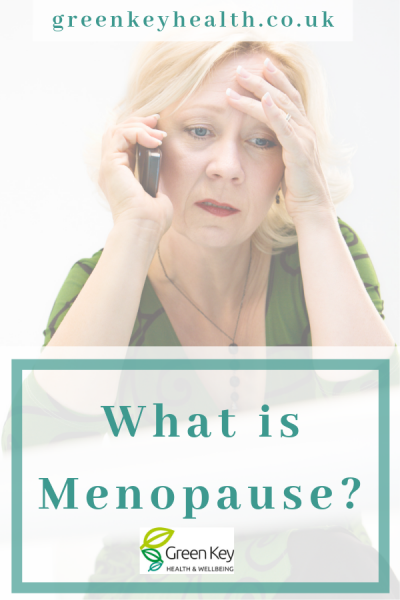
At around the age of 40 the interaction between hormones alters, eventually leading to menopause. There are various thoughts on how menopause starts. Some suggest it starts in the ovaries, others suggesting it starts in the hypothalamus and the pituitary glands in the brain.
Whatever the mechanism triggering menopause, as fewer egg follicles are stimulated, the amount of estrogen and progesterone being produced by the ovaries declines. Estrogen levels drop making it impossible for follicles to mature and lead to pregnancy. With reduction of these hormones, menstruation becomes less and erratic, until finally ceasing. This period can vary greatly from one woman to the next.
What happens after menopause begins?
After menopause the ovaries continue to function. They work in conjunction with other aspects of the body, including the adrenal glands, muscle, skin, brain, pineal gland, hair follicles and body fat, to produce hormones through the inner most part of the ovary, known as the inner stroma.
This part of the ovary has remained almost dormant until menopause when it starts to work with these other bodily functions to produce estrogen. This replaces estrogen generated during the monthly cycle sufficient to maintain hormonal balance and female health.
The late Dr Celso Ramon Garcia, M.D stated that “the hormones produced by the postmenopausal ovaries promotes bone health and skin suppleness, as well as supporting sexual function and protecting against heart disease, contributing to a woman’s overall wellbeing.”
This means the female body is capable of making the required adjustments in hormonal balance after menopause, providing a woman has taken good care of herself during the perimenopausal years with proper lifestyle, diet and mental and emotional health.
What is going wrong? Why do so many women suffer from menopause?
When a healthy woman has menstruation it is the time of the cycle when she is making very little of either progesterone or estrogen. Estrogen production starts to increase about 8 days after her period has started. Normally from around day 12-26 much more progesterone is being produced than estrogen.
If for some reasons this cycle is being interfered with, and there is no or little progesterone being produced, there is likely to be a surplus of estrogen floating in the system. The release of progesterone relies on ovulation during menstruation, which means that without ovulation no corpus luteum results and therefore no progesterone is made. This leads to a progesterone deficiency, known as an an-ovulatory cycle. These increase as menopause approaches, leading to a change in the menstrual flow.
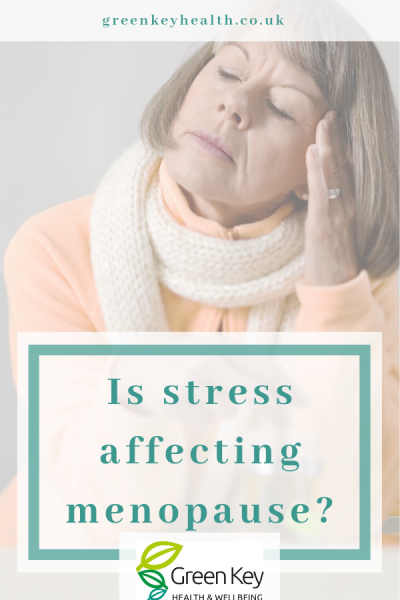 The role of stress
The role of stress
Progesterone deficiency is also related to several other issues, one of them being stress combined with the loss of progesterone. When under stress, progesterone is converted to cortisol to initiate the “fight” or “flight” response. This is at the expense of progesterone and estrogen.
When combined with an unhealthy diet it can also lead to an-ovulatory cycle. This starts a vicious cycle as the lack of progesterone interferes with the production of stress-combatting hormones, thus causing further stress that leads to more an-ovulatory cycles.
In summary, stress, nutritional deficiencies and chemical pollutants such as pesticides, herbicides, PCB’s and air pollution can all affect the natural delicate balance between estrogen and progesterone, causing an- ovulation.
What are the symptoms of estrogen dominance?
During the cycles of an-ovulation the body can suffer from erratic estrogen surges, including very high levels as well as overly low levels, which leads to a number of symptoms including mood swings, fatigue, breast tenderness, headaches, sleep disturbances, water retention, lack of sex drive and a tendency to put on weight. Fatigue is usually the result of estrogen interfering with thyroid function, producing feelings of being cold all the time and weight gain.
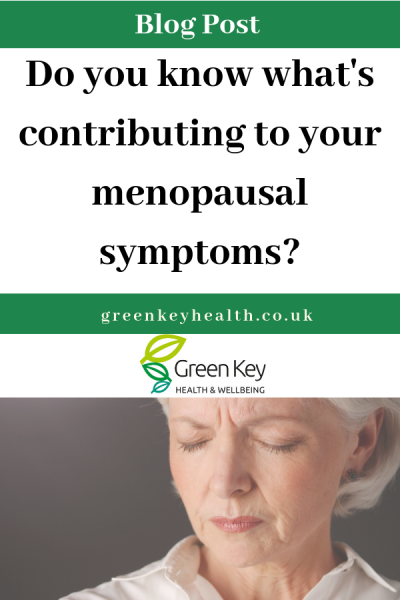 Stress is at it again
Stress is at it again
A “normal” Western lifestyle is a stressful one, and this has become the norm. Stress takes a terrible toll on women’s health and is a major contributor to hormonal imbalances. Women today expect to balance a career, a family and a marriage, putting all this before herself. The result – the adrenal glands are constantly on alert and pouring hormones into the system to manage the perceived threat, which never goes away.
As Dr Lee says “her body gets the message that survival is at stake. Blood sugar becomes unstable. Digestion goes awry so she isn’t absorbing nutrients properly. The ovaries respond by shutting down in favour of survival. When the ovaries shut down, progesterone production occurs only in the adrenals but they aren’t working and she’s not getting any progesterone from dietary habits, so she becomes progesterone deficient and estrogen dominant.” Binging on sugar, caffeine and refined carbohydrates further exacerbates the problem leading to an impaired metabolism.
An-ovulatory cycles also influences bone loss as progesterone is the bone building hormone. In combination with a poor diet and lack of exercise, many women are diagnosed with osteoporosis by the time they go through menopause.
Natural treatment
Menopause and peri-menopause can be treated naturally and successfully to relieve symptoms by reducing stress, improving diet and other lifestyle factors. Consulting a complimentary practitioner such as a herbalist, naturopath or homeopath, which in combination with these changes, will eliminate the symptoms with no side effects and long term serious health conditions.
Tips for a natural menopause: 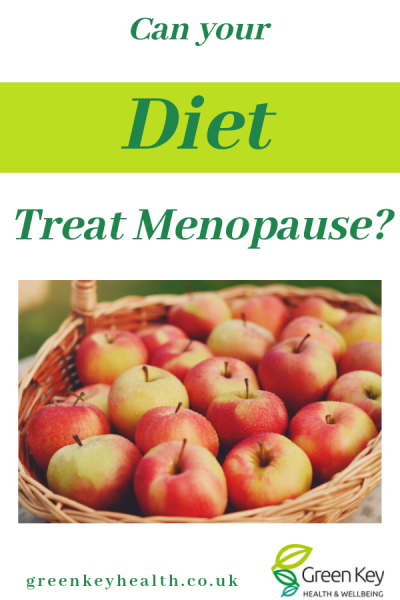
Perimenopause:
- Increase the number of fresh vegetables eaten especially those with phytoestrogens (soya beans, soya foods, seaweed nuts, linseed, apples, fennel, celery, parsley)
- Regulate blood sugar levels – avoid fizzy drinks, caffeine and other stimulants and processed, sugary foods that will spike blood sugar. Blood sugar regulation stabilizes the body and lessens hot flashes.
- Limit red meat in the diet and eat the appropriate amount of protein for your body weight.
- Take weight-bearing exercise to strengthen bone health.
- Cleanse the liver (under supervision of a qualified specialist)
During menopause:
In addition to the above,
- Increase cabbage-family foods including broccoli, cabbage, Brussels sprouts, kale, mustard and spring greens. These foods have a high content of nutrients that support bone health.
- Take exercise on a daily basis to decrease the frequency and severity of hot flashes and elevate mood. This will help to avoid impaired endorphin activity within the hypothalamus that is a major factor in provoking hot flashes.
- There are several herbs that are very effective at rebalancing the hormones during menopause. However, it is better to consult a herbalist to get a prescription that is suited to the individual and that will not interfere with any other medication the person might be taking.
References:
Dr Sherrill Sellman, ND, Hormone Heresy
Dr John R Lee M.D Natural Progesterone: The Multiple Role of a Remarkable Hormone
The late Dr Celso Ramon Garcia, M.D, Director of Surgery at the Hospital of Pennsylvania (27 years of teaching reproduction, pioneer in female fertility)
New here? I write about how to take a holistic approach to health and well-being, to treat illness and help you be the best you can be. You can read similar blogs here:
Are you Responsible for your Gout?
Muscle Memory, Loneliness and Health
Karaoke and Laughter - To Boost the Immune System?
Alert - All Hayfever Sufferers!
Beyond Pelvic Health - Your Temple
Suffering from Poor Sleep - Tips for a Good Night's Sleep
Electromagnetic Radiation and Effects on Health and Wellbeing
Artificial Sweeteners - Do They Make You More or Less Fat?
The Role of Emotional Health and Wellbeing - Third Chakra
The Role of Emotional Health and Wellbeing - Second Chakra
Do you love Pinterest as much as I do? Please pin any of these graphics!



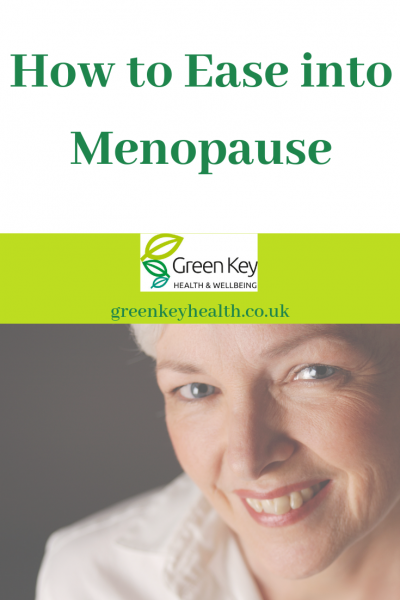


Add new comment